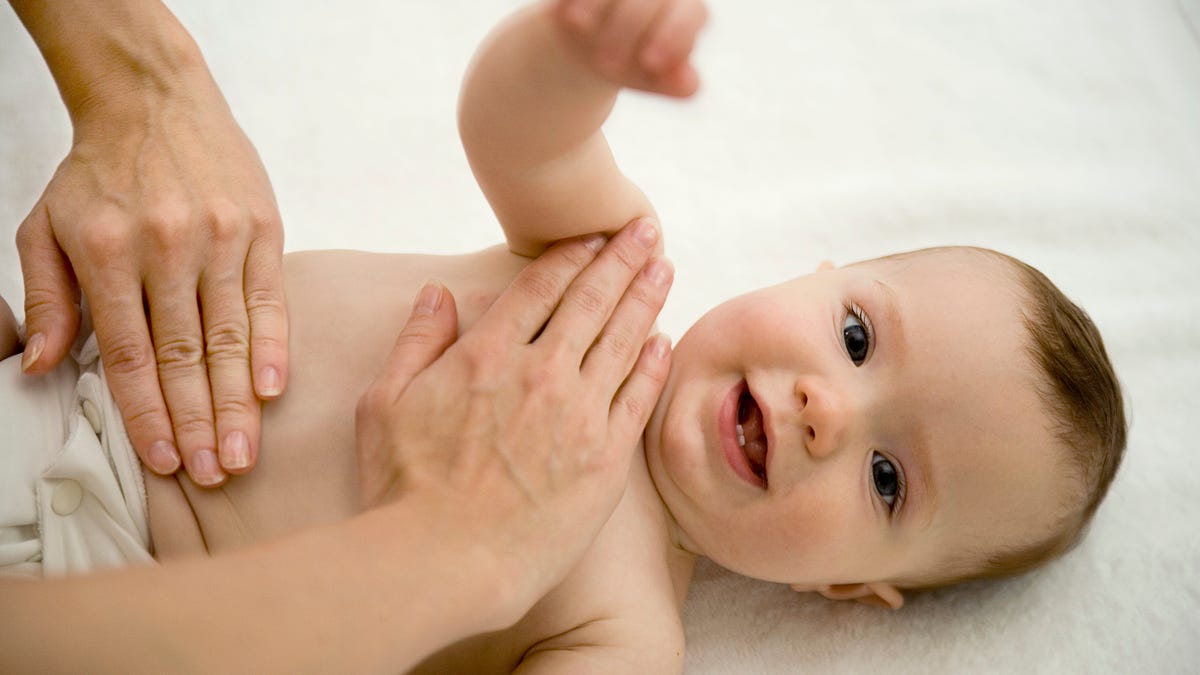7 Tips to Keep Your Baby's Skin Healthy During Every Season
It can be alarming for a new parent when your baby suddenly develops a skin condition. Here are a few things you can do to keep your baby's skin smooth and healthy.

Due to their brand-new sensitive skin, babies are prone to developing skin problems during their first few months. These skin conditions, like eczema, diaper rash and heat rash, can leave your baby with dry, itchy, irritated skin and cause mild to severe discomfort. Luckily, you can easily treat these skin conditions and prevent future occurrences with proper infant skin care.
We've rounded up our best baby skin care tips to keep your child's skin healthy.
Tip No. 1: Limit baths
A daily bath or shower may be part of your routine as an adult, but your infant does not require such frequent washing. Parents are encouraged to limit baths because they can dry out their baby's skin by stripping it of the moisture supplied by natural oils.
To ensure your baby's skin stays moisturized by these natural oils, Johns Hopkins Medicine encourages parents to limit baths to two or three times a week until their first birthday. When you bathe your infant, choose soaps and body washes that do not contain ingredients that can irritate their skin, like perfumes and dyes.
Tip No. 2: Moisturize with fragrance-free, hypoallergenic lotions
Keeping your baby's skin moisturized should be a priority. Many parents apply lotion to their infants daily, but the wrong product can damage or irritate the skin. Like soaps and body washes, many lotions contain dyes and perfumes that can damage your baby's skin or worsen their current skin condition. If your baby has eczema, a scented lotion can dry out their skin further, leaving it red, itchy and irritated.
Cincinnati Children's recommends fragrance-free, hypoallergenic lotions because they do not contain those irritating ingredients. Additionally, parents can consider using petroleum jelly, which does a great job at locking in moisture.
Tip No. 3: Avoid or limit sun exposure
If you can't avoid the sun completely and you must bring your baby outdoors, consider sun protection. If your baby is older than 6 months, you can apply sunscreen that is fragrance-free and hypoallergenic. Also, be on the lookout for sunscreens with active ingredients like titanium dioxide and zinc oxide, as they work the best.
The Food and Drug Administration doesn't recommend sunscreen for infants younger than six months, but this doesn't mean your baby can't go outside. You can use shirts, hats and umbrellas to protect your baby from the sun's rays.
Tip No. 4: Avoid the use of creams, gels and serums
Adults may apply products to treat skin conditions on their face and body, but it's best to steer clear from these products when it comes to babies and skin conditions, specifically baby acne. Cincinnati Children's warns parents against using products directly on the affected area. When cleaning an area where acne is present, parents are advised to use only water. Avoid using soaps or acne products and keeping the area dry will allow the acne to go away on its own.
Tip No. 5: Change diapers frequently
Diaper rash is a common skin condition that parents face when caring for their infants. This skin condition may appear as red bumps and patches on the baby's buttocks and genitals. It's often the result of moisture from a soiled diaper, a fungal infection, sweat or not being thoroughly dried after a bath.
According to Johns Hopkins Medicine, parents should frequently change their infant's diaper to avoid prolonged exposure to moisture from a soiled diaper, which can irritate the skin. When drying your baby after a bath, be sure your baby's buttocks and genitals have been dried properly. If a diaper rash appears, you can apply petroleum jelly, zinc-oxide cream or antifungal cream.
Tip No. 6: Wash baby's items after each use
You'll likely use several blankets, towels and clothing items when caring for your infant. If not washed frequently, these items can get dirty and pick up bacteria that could irritate your baby's skin. Parents should wash their baby's items between uses.
You want to wash dirty blankets, towels and clothing after each use, and you'll also want to wash them with a fragrance-free detergent. Like lotions containing dyes and perfume, laundry detergent can contain similar ingredients that can dry and irritate your baby's skin.
Tip No. 7: Avoid extreme temperatures
UV rays are not the only threat to infants outdoors. Exposure to high, humid temperatures can cause an infant to develop a heat rash. This skin condition can appear as tiny, pink bumps on your baby's neck, chest and upper back.
A heat rash can be avoided if you dress your infant in thin, lightweight clothes when the weather is warm or humid. However, if you're unsure of the weather, consider dressing them in layers, which will allow you to easily remove clothing and keep them cool. Moving your baby away from the hot environment or giving them a cool bath can prevent heat rash.